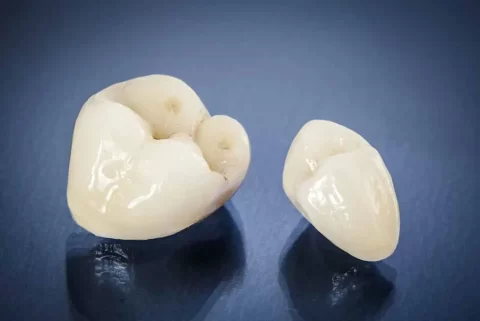Dental Cavities
Frisco TX
Dental cavities, which are also referred to as tooth decay or caries, are characterized by the presence of small openings or holes in the teeth that result from permanent damage to the enamel. These health problems are prevalent worldwide.
The main symptoms of this condition include toothache, sensitivity, the presence of visible holes in your teeth, and pain when consuming sweet, hot, or cold foods.
Cavities can develop due to various factors, which include the presence of bacteria in the mouth, regular snacking, consumption of sugary drinks, and inadequate oral hygiene practices.
The available treatment options for decay vary depending on its severity. These options may include fluoride treatments, fillings, crowns, root canals, and, in severe cases, tooth extractions.

The Role of Plaque Buildup and Diet in Tooth Decay
Plaque, which is a sticky film of bacteria that develops on teeth, is a key factor in the occurrence of tooth decay. When sugar and starches from food and drinks are not properly removed from teeth, bacteria rapidly start to consume them and produce acids.
These acids can cause damage to tooth enamel, which can ultimately result in the formation of cavities. Consuming a diet that is rich in sugar and carbohydrates greatly raises the likelihood of developing cavities, as these types of food are the preferred sources of nutrition for the bacteria responsible for tooth decay.
Preventing Dental Cavities: The Importance of Good Oral Hygiene
Maintaining good oral hygiene is the primary way to prevent cavities. To maintain good oral hygiene, it is important to follow a few key practices. These include brushing your teeth at least twice a day using fluoride toothpaste, flossing on a daily basis, and incorporating the use of an antiseptic mouthwash to effectively eliminate bacteria.
Regular dental check-ups and cleanings are essential for early detection of problems and maintaining a plaque-free mouth. In addition, it is beneficial to reduce sugar consumption, particularly between meals, and to stay hydrated by drinking ample amounts of water in order to prevent tooth decay.
Complications of Untreated Cavities: From Pain to Tooth Loss
Neglecting to treat cavities can result in serious complications. At first, cavities may cause mild pain and sensitivity. However, as they advance, they can result in more intense pain, infection, and potentially even abscesses.
If a cavity is left untreated, it can weaken the tooth to the extent that it may break or require extraction. In severe instances, the infection has the potential to spread to different areas of the body, resulting in significant health issues.
Addressing Tooth Sensitivity and Pain Caused by Dental Cavities
Dental cavities often manifest as tooth sensitivity and pain, which are common symptoms. To effectively manage this issue, it is important to address the cavity directly and utilize desensitizing toothpaste to alleviate any associated symptoms. Dentists can provide fluoride treatments that are effective in reducing sensitivity.
When a cavity causes intense pain, it may be necessary to undergo dental procedures such as fillings, crowns, or root canals. These procedures are performed to eliminate decay and alleviate the pain experienced by the individual.
Frequently Asked Questions -
Dental Cavities
At Aesthetic General Dentistry of Frisco, we’re always here to clarify and guide. Never hesitate to ask; your oral health is our top priority!
How do I know if I have a cavity?
Common signs of a cavity include toothache, sensitivity, visible holes or pits in your teeth, and pain when eating or drinking something sweet, hot, or cold.
Can cavities heal on their own?
Once a cavity has formed in the enamel, it does not heal on its own. Early stages of decay can sometimes be reversed with fluoride.
How often should I visit a dentist to prevent cavities?
It’s recommended to visit a dentist for check-ups and cleanings every six months, though some individuals may need more frequent visits.
Are children more at risk for cavities?
Yes, children and teenagers are at a higher risk for cavities, but anyone with teeth can get them, including infants.
Can I still get cavities if I have fillings or crowns?
Yes, teeth with fillings or crowns can still get cavities, especially around the edges of fillings or crowns where bacteria can gather.
It’s important to consider the role that dental cavities have on your overall oral health. While genetics and the foods we eat are factors in developing cavities, there are many things we can do to reduce or eliminate our risk. Taking care of our teeth with regular brushing and flossing is a key factor in prevention as well as having regular dental visits for cleanings, check-ups, and exams. If you have questions regarding cavity treatments or preventive care contact Aesthetic General Dentistry of Frisco today to schedule an appointment! With our experienced team of dentists and hygienists they can work with you individually discuss your needs and create a customized plan for healthy teeth.
